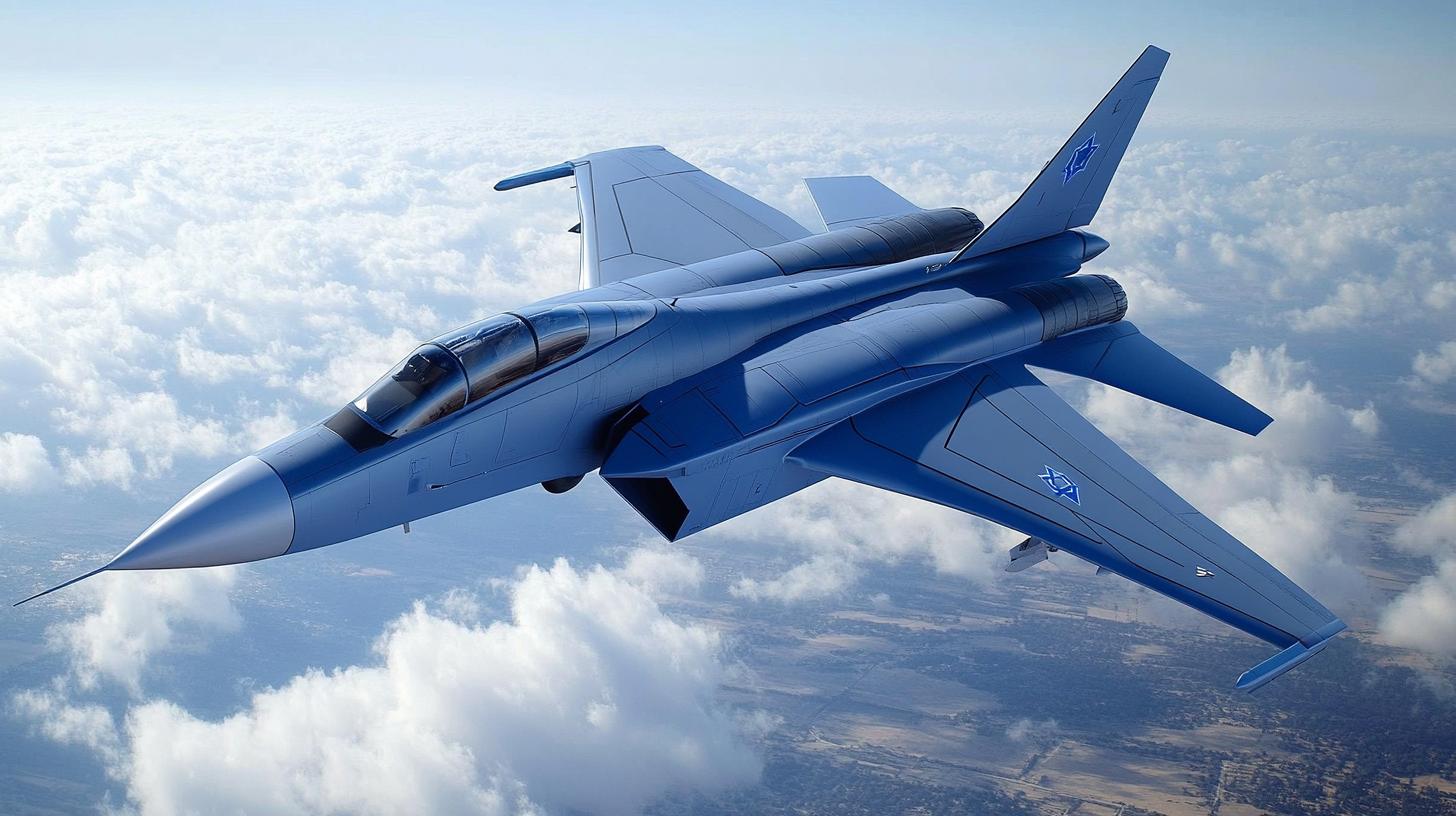In a monumental move to enhance its air prowess, Israel is slated to receive 25 advanced F-15EX Eagle II jets from Boeing, under a $5.2 billion deal set for delivery beginning in 2031. This acquisition aims to upgrade the Israeli Air Force’s combat capabilities by integrating cutting-edge Israeli and U.S. technologies into these aircraft.
Advanced Military Equipment
The F-15EX Eagle II, designated locally as the F-15IA, will become a powerful addition to Israel’s air fleet. Equipped with state-of-the-art systems, these jets promise enhanced range, payload capacity, and operational flexibility, offering Israel a strategic advantage in regional military dynamics.
Boeing will gradually supply these multirole fighters in annual batches, ensuring a steady enhancement of the air force capabilities. Alongside, the Israeli government plans to upgrade its existing fleet of F-15I Ra’am fighters to the F-15I+ standard, reinforcing its air combat effectiveness.
Strategic Military Enhancement
The Israeli Defense Ministry has been proactive in fortifying the nation’s military power to confront present and emerging threats. This deal aligns with Israel’s ongoing efforts to boost the resilience and effectiveness of its defense forces. A new squadron will be established to integrate these advanced jets, further solidifying Israel’s defense infrastructure.
This development reflects Israel’s commitment to maintaining superior military capabilities in its volatile geographic region. With the formal agreement and strategic collaboration between Boeing and the Israeli government, this ambitious plan is set to transform Israel’s combat aviation landscape.
The partnership continues the historic ties between the U.S. and Israel, emphasizing shared defense goals and technological exchange crucial in modern military strategies.
Game-Changer in Air Defense: Impacts of Israel’s New F-15EX Deal
In a world where air superiority can dictate military outcomes, Israel’s recent decision to acquire 25 advanced F-15EX Eagle II jets from Boeing represents more than just a significant upgrade to its air force. While the original announcement focused on bolstering Israel’s defense capabilities, this deal has broader implications and raises pertinent questions about global military strategy, economics, and geopolitics.
Implications for Regional Stability
While Israel’s acquisition of the F-15EX Eagle II enhances its defense posture, it also escalates the arms race in the Middle East. Nations like Iran, Saudi Arabia, and others may feel compelled to invest in comparable military technologies, potentially heightening regional tensions. This increased military expenditure could divert resources from crucial areas like healthcare and education, impacting societal development.
Additionally, the deployment of such advanced jets brings into question the balance of power in the region. Will neighboring countries seek alliances or new defense pacts to counterbalance Israel’s upgraded air force? The responses could reshape political alliances and influence diplomatic discourse across the Middle East.
Technological Advancements and Their Ripple Effects
The integration of cutting-edge technologies in the F-15EX jets will have a cascading effect on domestic innovation. These jets are set to incorporate sophisticated Israeli and U.S. systems, prompting advancements in fields such as avionics, communication, and cyber warfare. This technological boom could spill over into the civilian sector, driving progress in telecommunications, cybersecurity, and electronics.
However, this also raises ethical concerns about the dual-use nature of military technology. How these advancements are regulated and controlled becomes critical to prevent misuse or proliferation to non-state actors.
Economic Considerations
The $5.2 billion deal with Boeing not only strengthens Israel’s air force but also has substantial economic implications. It reinforces the U.S.-Israel economic partnership, potentially boosting job creation and technological developments within both nations. However, such enormous expenditure prompts the question: Are the opportunity costs justified? With rising global economic challenges, allocating billions to defense budgets may face scrutiny from those advocating for more spending on social welfare and infrastructure.
Advantages and Disadvantages
An undeniable advantage of this deal is the enhancement of Israel’s aerial capabilities, securing its defense advantage for years to come. The F-15EX jets bring unprecedented operational flexibility, range, and payload capacity that few current-generation fighters can match.
On the downside, the escalating defense spending could incite regional competitors to similarly increase their military budgets, pushing the Middle East into a costly arms race with unpredictable consequences.
Conclusion: A Win-Win or A Tipping Point?
As Israel gears up for the delivery of the F-15EX jets, critical questions emerge: How will this affect Israel’s diplomatic standing? What strategies will the region adopt in response? Are countries investing excessively in military capabilities at the expense of other critical sectors?
The implications of this deal extend beyond military might, weaving into the fabric of geopolitical strategy, technological progress, and economic policies on a global scale.
For further insights:
– Visit the official Boeing website for more information on the F-15EX Eagle II.
– To explore regional defense dynamics, check out Janes.
These questions and the continuous evolution of defense strategies will shape regional and global landscapes, making this development a focal point for policymakers and citizens alike.







